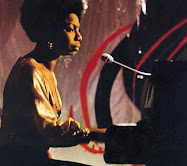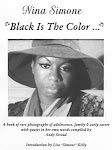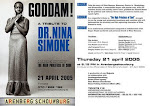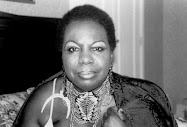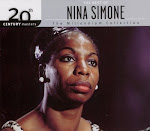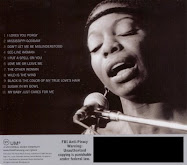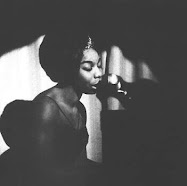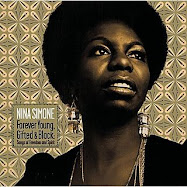Wednesday, February 25, 2015
Clark Terry
Clark Terry
Grammy Award-winning jazz trumpeter who played in the orchestras of both Count Basie and Duke Ellington and on "The Tonight Show" has died. Clark Terry was 94.
He left us peacefully, surrounded by his family, students and friends. Clark has known and played with so many amazing people in his life. He has found great joy in his friendships and his greatest passion was spending time with his students. We will miss him every minute of every day, but he will live on through the beautiful music and positivity that he gave to the world. Clark will live in our hearts forever.
Clark Terry Remembered Playlist
He has played with every big name in jazz over the last half-century from the likes of Count Basie, Duke Ellington, Thelonious Monk, Oscar Peterson, to Ella Fitzgerald…the list could go on forever. With such a rich performing career spanning over seven decades, he continued to play with today’s top musicians and inspire up and coming improvisers.
Clark Terry (born December 14, 1920) was an American swing and bop trumpeter, a pioneer of the flugelhorn in jazz, educator, and NEA Jazz Masters inductee.
Clark Terry began his professional career in St. Louis in the early 1940s by playing in local clubs before joining a Navy band during World War II. Afterwards, he played with Charlie Barnet (1947), Count Basie (1948-1951), Duke Ellington (1951 to 1959), and Quincy Jones (1960). He also performed and recorded regularly both as a leader and sideman. In all, his career in jazz spans more than seventy years.
"That sound that I had listened to for years on record was coming out of a horn a foot away from me. It was an experience that I will always remember. I don’t know what was more impressive, the fact that I was sitting down with a jazz legend or that Clark, age of 89, came into the music school practice rooms around 10 at night to hang out with students for free. "
Pretty amazing, but then again Clark Terry has been dedicated to educating young jazz musicians for decades. He mentored a young Miles Davis and encouraged Quincy Jones as he was starting out as an arranger and trumpet player. With a track record like that, it’s safe to say that he knows a few things about learning this music.
There is no mention of him ever retiring or slowing down. When not performing music, he continued to mentor and teach just about every notable jazz musician of the past three decades.
Terry — equally at home with big bands and playing solo — was lauded with every music award and tribute one can win — more then 250 by his count.
Most notably, he has 16 honorary doctorates, knighthood in Germany, induction in several music halls of fame, a Grammy Lifetime Achievement Award and several times named musician, artist or trumpeter of the year. He also performed for seven US presidents.
After touring with Duke Ellington’s band, Terry joined “The Tonight Show” in 1962 (first working with Skitch Henderson and later Doc Severinsen.) He spent ten years with the program and was often a featured soloist. He became popular to audiences often being referred to by his nickname “Mumbles,” a tribute to his musical sound.
His original compositions include more than two hundred jazz songs, and he co-authored books such as Let’s Talk Trumpet: From Legit to Jazz, Interpretation of the Jazz Language and Clark Terry’s System of Circular Breathing for Woodwind and Brass Instruments with Phil Rizzo.
Master Class with Clark Terry - The Performance
In this clip from www.artistshousemusic.org - On Sunday November 28th, 2004 Clark Terry gifted us with the third Master Class in the 2004 fall series offered in conjunction with John Snyder of Artists House Foundation and David Schroeder of NYU. Clark Terry, a legend jazz trumpeter is known as a headliner at the world's premier jazz events, a TV personality featured on national programs and one of jazz's finest educators. In 1951 Clark joined Duke Ellington's orchestra as a featured soloist for eight years. He was also the first black musician on the NBC payroll as a spotlighted player in the Tonight Show with Johnny Carson. It was at this time Clark had a smash hit featuring Mr. Mumbles. You will see in the Master Class video Clark gives us a very amusing segment of Mr. Mumbles. Clark is known for his great technical virtuosity, swinging lyricism and his gift as a wonderful dramatist whose musical talent leaves an audience thoroughly delighted.
Jazz at the Philharmonic 1967 BBC JATP Clark Terry
Clark Terry, James Moody, Zoot Sims, Dizzy Gillespie, Coleman Hawkins, Benny Carter, Teddy Wilson,
Louie Bellson , T-bone Walker, Bob Cranshaw
Sunday, February 22, 2015
Stanley Turrentine
Stanley William Turrentine was one of the most distinctive tenor saxophonists in jazz. Known for his big, warm, sound, “The Sugar Man” or the original “Mr. T” found inspiration in the blues and turned it into a hugely successful career with a #1 hit and four Grammy nominations -- first in R&B and then in jazz.
Stanley Turrentine Blue Joy Playlist
Born on April 5, 1934 in Pittsburgh, a city that has produced more than its share of jazz masters, Turrentine hailed from a musical family. His saxophone-playing father was a big influence, as was his stride piano-playing mother and older brother, the late trumpeter Tommy Turrentine.
One of Stanley's earliest influences on sax was tenor great Illinois Jacquet. Jacquet once encouraged a 12-year old Stanley to sit in with him. At 17, Turrentine went on the road with bluesman Lowell Fulson. In 1953, he was hired by R&B saxman and bandleader Earl Bostic to replace John Coltrane.
A consummate musician who learned his craft through disparate experiences and influences, Turrentine received his only formal musical training during his military stint in the mid-'50s. In 1959, he jumped from the frying pan into the fire when he left the military and went straight into the band of the great drummer Max Roach.
Turrentine married organist Shirley Scott in 1960. When they moved to Philadelphia, they befriended Hammond B-3 organ legend Jimmy Smith and Turrentine quickly immersed himself in the Smith's soulful jazz organ sound. He even recorded on Jimmy's epochal Blue Note album Midnight Special.
The organ-centered soul-jazz that Jimmy Smith and Shirley Scott concocted provided Turrentine the perfect gateway to cross over into pop territory. His first foray in this new, more radio-friendly music began in 1969 when he signed with Creed Taylor's slick and successful CTI label.
Turrentine's first album for CTI, Sugar, was released in 1970 and yielded the classic tune of the same name. He continued with a string a pop-laced crossover albums for CTI including the 1971 hit Don't Mess with Mr. T. His relative success, despite his continued ability to deliver in the straight-ahead jazz vein, led to a predictable critical backlash. Listen to L.A. Times jazz critic Don Heckman, bassist Ray Brown, and Stanley talk about the critical backlash he received after making pop-oriented hit albums
Nevertheless, Turrentine persevered on the ever-changing landscape of jazz, by tapping into his enduring, soulful sound and bluesy approach. He remained a perennial favorite among jazz fans well up to his untimely death on Sept. 12, 2000.
Stanley Turrentine - In Concert (1990)
Stanley Turrentine Blue Joy Playlist
Born on April 5, 1934 in Pittsburgh, a city that has produced more than its share of jazz masters, Turrentine hailed from a musical family. His saxophone-playing father was a big influence, as was his stride piano-playing mother and older brother, the late trumpeter Tommy Turrentine.
One of Stanley's earliest influences on sax was tenor great Illinois Jacquet. Jacquet once encouraged a 12-year old Stanley to sit in with him. At 17, Turrentine went on the road with bluesman Lowell Fulson. In 1953, he was hired by R&B saxman and bandleader Earl Bostic to replace John Coltrane.
A consummate musician who learned his craft through disparate experiences and influences, Turrentine received his only formal musical training during his military stint in the mid-'50s. In 1959, he jumped from the frying pan into the fire when he left the military and went straight into the band of the great drummer Max Roach.
Turrentine married organist Shirley Scott in 1960. When they moved to Philadelphia, they befriended Hammond B-3 organ legend Jimmy Smith and Turrentine quickly immersed himself in the Smith's soulful jazz organ sound. He even recorded on Jimmy's epochal Blue Note album Midnight Special.
The organ-centered soul-jazz that Jimmy Smith and Shirley Scott concocted provided Turrentine the perfect gateway to cross over into pop territory. His first foray in this new, more radio-friendly music began in 1969 when he signed with Creed Taylor's slick and successful CTI label.
Turrentine's first album for CTI, Sugar, was released in 1970 and yielded the classic tune of the same name. He continued with a string a pop-laced crossover albums for CTI including the 1971 hit Don't Mess with Mr. T. His relative success, despite his continued ability to deliver in the straight-ahead jazz vein, led to a predictable critical backlash. Listen to L.A. Times jazz critic Don Heckman, bassist Ray Brown, and Stanley talk about the critical backlash he received after making pop-oriented hit albums
Nevertheless, Turrentine persevered on the ever-changing landscape of jazz, by tapping into his enduring, soulful sound and bluesy approach. He remained a perennial favorite among jazz fans well up to his untimely death on Sept. 12, 2000.
Stanley Turrentine - In Concert (1990)
Subscribe to:
Comments (Atom)







































